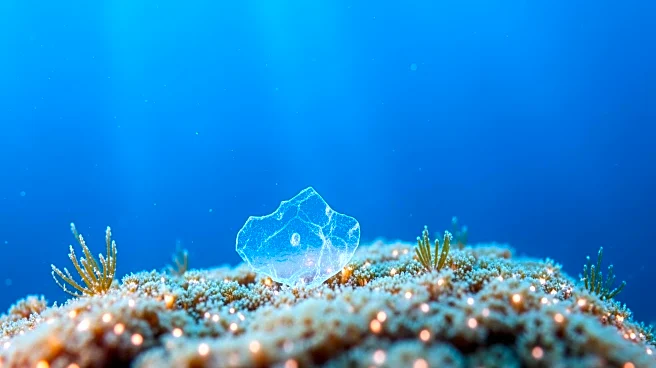What's Happening?
A recent study published in the Proceedings of the National Academies of Science reveals that even small amounts of plastic can be fatal to marine animals. Researchers from the University of Tasmania, Commonwealth Scientific and Industrial Research Organization,
and Federal University of Alagoas found that as few as six pieces of rubber the size of a pencil eraser can kill most seabirds. For marine mammals, 29 pieces of any type of plastic can be lethal. The study analyzed data from over 10,000 necropsies and found significant ingestion of plastic among seabirds, marine mammals, and sea turtles. The findings underscore the urgent need for reducing plastic production and improving recycling efforts.
Why It's Important?
The study's findings highlight the severe threat plastic pollution poses to marine biodiversity. With millions of tons of plastic entering oceans annually, the impact on marine life is profound, affecting endangered species and disrupting ecosystems. The research provides critical data that can inform policy decisions aimed at reducing plastic waste. By understanding the specific quantities of plastic that are lethal, policymakers can craft more effective regulations to mitigate this environmental crisis. The study also emphasizes the need for global cooperation in addressing plastic pollution, as current international efforts have been insufficient.
What's Next?
The study's authors hope their findings will prompt legislative action to reduce plastic production and enhance recycling. Potential measures include bans on certain plastic products and increased support for local cleanup initiatives. The research may also influence international negotiations on plastic pollution, encouraging countries to adopt stricter controls. Environmental organizations and policymakers are likely to use this data to advocate for more comprehensive strategies to combat plastic pollution, potentially leading to new regulations and international agreements.
















